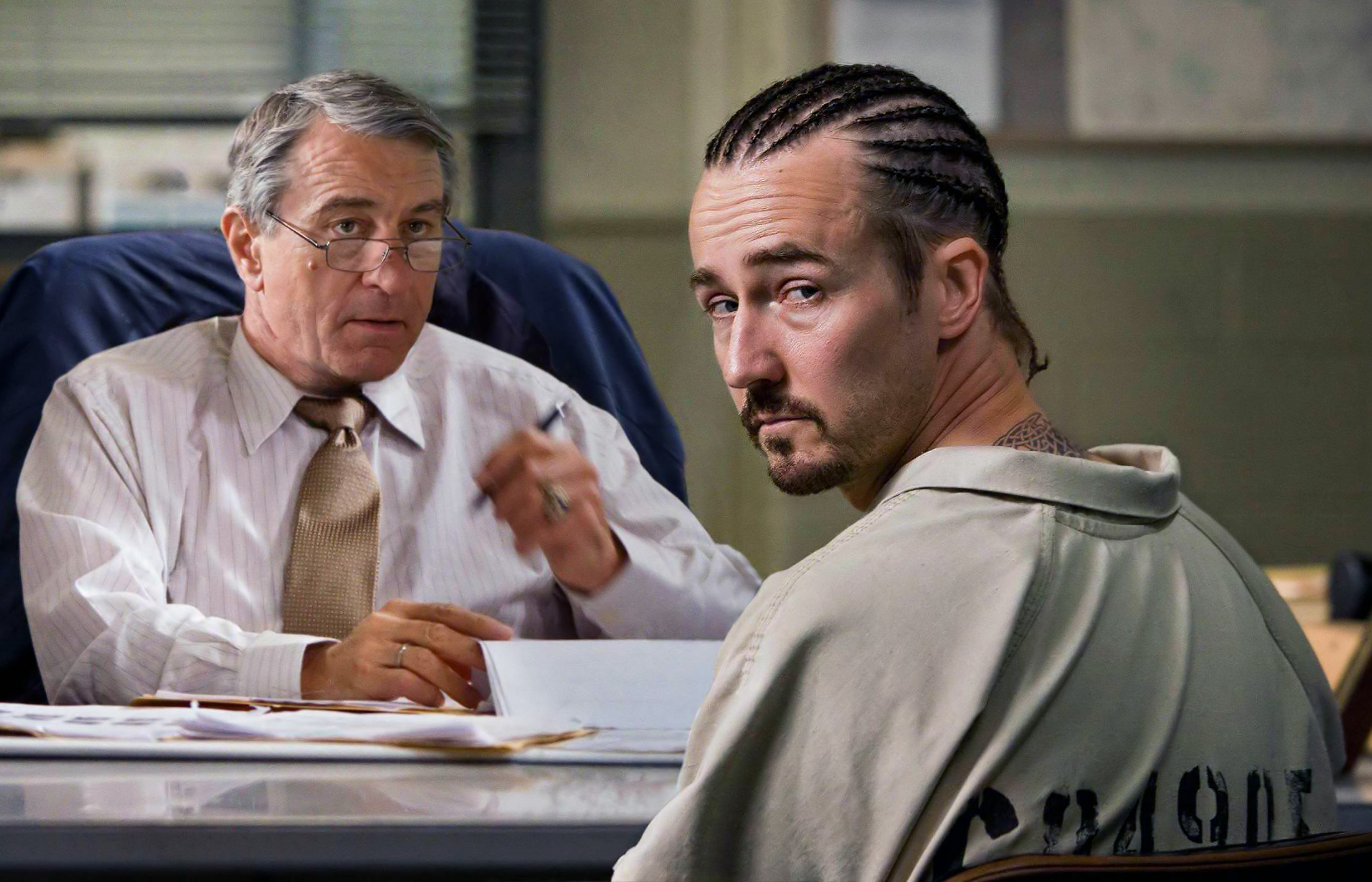John Curran’s “Stone” begins with a man in his twenties watching golf on TV, ignoring his wife even when she hands him a drink. She studies him for a moment, and from her face we can tell that this scene of neglect is their entire marriage writ small. Pushed to the brink of domestic sanity, she announces that she’s leaving.
For a moment the man just sits there, staring at the TV. Then he gets up, bounds upstairs and scoops their sleeping young daughter from her bed. He carries her to the window and opens it, dangling the girl over the sill until his wife, quickly approaching hysteria, promises never to leave if he pulls their daughter back inside.
Fast-forward to present day, and this man, Jack Mabrey, appears to have become a stand-up citizen. He’s a parole officer, his radio is tuned to a Christian talk show and he’s now played by Robert De Niro, who tends to be likable even when he’s not supposed to be.
But Curran, has let us in on Jack’s secret in that deliciously tense, artfully crafted opening sequence. It’s also the secret of the film as a whole: people are complicated, ambiguous creatures. They cannot be explained by what they appear to be now, nor by what they used to be.
This applies to no character so much as Gerald Creeson (Edward Norton), a convicted arsonist whose nickname is the film’s title. He is Mabrey’s final case before the officer retires, and “Stone” is in no small part concerned with Creeson’s quest to reform himself, or at least to convince Mabrey that he’s done it.
Thirty years ago, De Niro might have played the criminal, but that would have made for an entirely different movie. Norton takes a daring approach to the character, assuming a rough, high-pitched voice, tight cornrows and the slouching swagger of the streets. The closest reference in his career is Monty Brogan, the drug dealer he played in Spike Lee’s “25th Hour,” but Creeson is a scrappier, more aggressive criminal, and Norton is mesmerizing in the role.
To prove that he’s a changed man, Creeson turns to spiritual literature he finds in the prison library; his search for an epiphany, and the unease he provokes in Mabrey, a traditional Christian, allow Curran to bring religion into the film in his own intellectual way, exploring it rather than making any definitive statement.
While Creeson pursues enlightenment, his wife, Lucetta (Milla Jovovich), tries her own angle from the other side of prison bars, seducing Mabrey in whatever way possible to facilitate her husband’s release from jail. If all you know of Jovovich is the “Resident Evil” series, rid yourself of any preconceived notions; her Lucetta is a fascinating character, manipulative and insecure, powerful and delicate.
As Creeson works on himself and Lucetta works on Mabrey, “Stone” becomes a mess of tangled human drama. The radio show host Mabrey listens to talks of sin, but Curran refuses to explain his story in such absolute terms.
His three main characters each move toward conclusions that seem familiar, or at least reasonable, but they resist explanation beyond the fact that what they do makes sense considering what came before. Morality is Curran’s grand subject, but it is presented as a question, never an answer.
For constancy we have only Madylyn (Frances Conroy), Mabrey’s wife. We see a younger version of her in that opening scene, and her older self appears sporadically to remind us that she is still quietly enduring her broken marriage. We cannot help but sympathize with her, so vividly has Curran presented his characters, and their potential to wreak havoc on one another.
E-mail Goodman at agoodman@media.ucla.edu.
